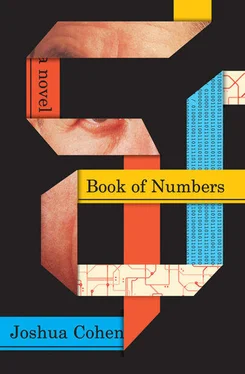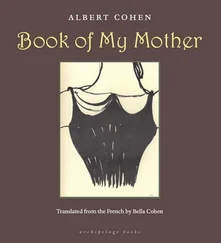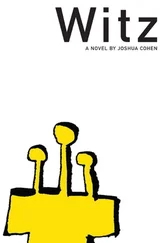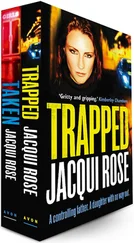Both de Groeve and O’Quinn were compsci majors and by the end of first semester had cowritten a program for Concentives that enabled the mystery shopping company to automatically tabulate upsell results and implement a general rating system, both by mall and by franchises of chains among malls. However, they were still having a problem with standardizing, not to mention automating, the evaluations of the written portion of each assessment and, having related the particulars to Cohen as they packed for the holidays, left — de Groeve to Hong Kong, O’Quinn to Philadelphia. Cohen remained in his dorm throughout winter break, and by the time his roommates returned for second semester he’d engineered a solution. The roommates were stunned. Cohen had broken through their wall, and not just figuratively, but literally. Requiring their stash of written assessments and unable to find his copy of their key amid his mess, he’d borrowed a sledgehammer from maintenance and bashed a crude passage into the plaster shared between their rooms.
In Cohen’s estimation, deriving and automating [automatizing?] ratings from written assessments was merely an extension of listing, a matter of sourcing an urlist of keywords, which could be accomplished either by management designating approved verbiage for reportorial use (“topdown”), homogenizing and so narrowing the expression of the reports, or by culling the reports themselves for the verbiage (“bottomup”), relying on the reporters to provide a heterogeneous and so wider expression. [Obviously?] this latter option was preferable, but it could be implemented only if the assessments were made searchable.
Cohen had written a [descriptor algorithm?], pen on quadrille paper, which totalized the frequency of term use both across the entire spectrum of reportage — by all reports, by all reports within mall, by all reports within type (“apparel,” “appliances”), by all reports within chain (“McDonald’s,” “Burger King”) — and within the oeuvre of each individual reporter. This approach generated ratings both of the stores and the shoppers or pseudoshoppers themselves, whose written assessments were rife with [ambiguous proportions?]: “very”/“extremely” being positive values when applied to “helpful,” but negative values when applied to “unhelpful,” not to mention the double negatives (“not unhelpful”), which were only halfway positive, and the double positives (“too helpful”), which were only halfway negative.
De Groeve and O’Quinn coded the algorithm in C++ [INSERT JOKE? “THE ONLY GRADE ANY OF US RECEIVED THAT SEMESTER”?]. Cohen would have nothing to do with the programming besides suggesting that the better language to use might be Perl, in which each line is prefaced with a dollar sign — a “$” [CLARIFY USAGE/DIFFERENCES, BETWEEN CODING AND PROGRAMMING, AS NOUN AND VERB].
Cohen completed his freshman year without visiting home, which was only [#] miles away, and without even taking his finals, which were only [#] yards away. That summer he turned down an offer from de Groeve and O’Quinn to live in an apartment with them in San Francisco’s Mission District and hone the program, now officially called Repearter, for Concentives, and instead opted to stay in his single, and accept recruitment [WHY?] into a panoply of university projects [WHY RECRUITED?]: memory and cognitive studies (on efferent discharge, synaesthesia, subitization), and a psych manifestation team that trained participating students to embody certain characteristics of certain psychiatric syndromes and comorbidities to test the ability of trainee shrinks to identify factitious disorders (as team members included both “authentics”—those with genuine syndromes/comorbidities — and “healthies”—those without — and as admission to the team required screenings by mental health professionals, whose findings were not revealed to anyone, no team member was aware of which they were, or were supposed to have been, until the collation of the professional and trainee diagnoses that marked the study’s conclusion).
Cohen’s sophomore year was, if possible, even more disastrous. He was generally regarded as the most promising [undergraduate?] mathematician at Stanford, and yet he was failing all of his classes except for a course in information theory. He wandered the campus perpetually, somnambulistically, and his attempts to count the numbers of windows and doors in each of the buildings, and his unwillingness to move from Stern into another dorm [WHICH?] he was assigned, were all taken as indicative of drug dependence.
The hole hammered into his wall[— over which he hung an ersatz family shrine featuring a Chinese New Year’s card wishing a lucky Year of the Horse 4688, which depicted the de Groeve parents dressaged from jodhpurs to helmets on horseback atop Victoria Peak above Pok Fu Lam and bay, and an unframed group portrait of Philadelphia’s own Local 3, which union did not identify but unequivocally represented O’Quinn’s brothers — ]was rumored to have been the result of a methamphetamine lab explosion. With de Groeve and O’Quinn informing him that even the faculty had been gossiping about his hallucinogen abuse, Cohen went into Math 234/Stat 374, Major Deviations, obstructing and so invalidating a toss of either fair or loaded dice [“TO DETERMINE WHETHER STOCHASTIC PROCESSES WITH DIFFERENT TRANSITION MATRICES PRODUCE THE SAME STATE DISTRIBUTION”], and introduced himself to the professor as Inigo Zweifel, which was the professor’s own name.
Cohen’s second sophomore semester was spent further investigating indeterminacy [EXPAND], in an office repurposed from the dormroom in Toyon Hall assigned to de Groeve and O’Quinn, who at the time were finalizing Repearter for Concentives in their Mission District apartment, commuting to campus only for classes. Cohen had refused his share of the $20000 the roommates were paid to deliver the program, but counterproposed nothing except this office. It was filled with decks of creased playingcards, Thoth tarots, lotto tickets and scratchers labeled by purchase date and location, snapped pasternbones and yarrowstalks, all of which kept him from his cryptography problemsets for aleatory variables. Library books on Confucianism, Taoism, Shintoism, and Muism [KOREAN SHAMANISM AND NOT A TYPO], overdue and never due because stolen. [Breaking into 208 Sequoia? to protest the student incident report Professor Zweifel lodged with the ombuds?] He acquired a black magicmarker and a white dryerase board, which he [back in his quarters] installed incorrectly — with the board’s scrubbable surface facing the wall, so the corkwood backing facing out — meaning that anything he’d write on it would be permanent, so he waited, and was patient.
There was a knock at the door and Cohen ignored it but the knocks kept coming. He went to the door and asked who it was and the voice on the other side answered, “Acting Dean of Student Affairs Kyle.”
Cohen was sure he was being expelled but then Acting Dean of Student Affairs Kyle asked, “Are we speaking with Mr. de Groeve or Mr. O’Quinn?”
Cohen answered, yelling, that he was speaking with both of them.
“Will you open up, please?”
Cohen yelled they were both undressed.
“We have been trying to get in touch with Mr. Joshua Cohen. We understand he is a friend of yours.”
Cohen confirmed.
“Mr. Cohen is not in his dorm and famously not in class — will you at least pass along a msg?”
Cohen pressed his mouth up against the door, said nothing.
“Please tell him to be in touch with his mother. An emergency family situation.”
[DIALOGUE VERBATIM FROM PRINCIPAL — REWRITE ALL W/ SINGULAR PRONOUN AND W/ CONTRACTIONS.]
[ID TIME AND LOCATION AT TOP? OR BOTTOM?]
Cohen unlocked and turned the knob. His father had had another heartattack, in the sauna at the Belmont Hills JCC, 04/01/91.
Читать дальше












